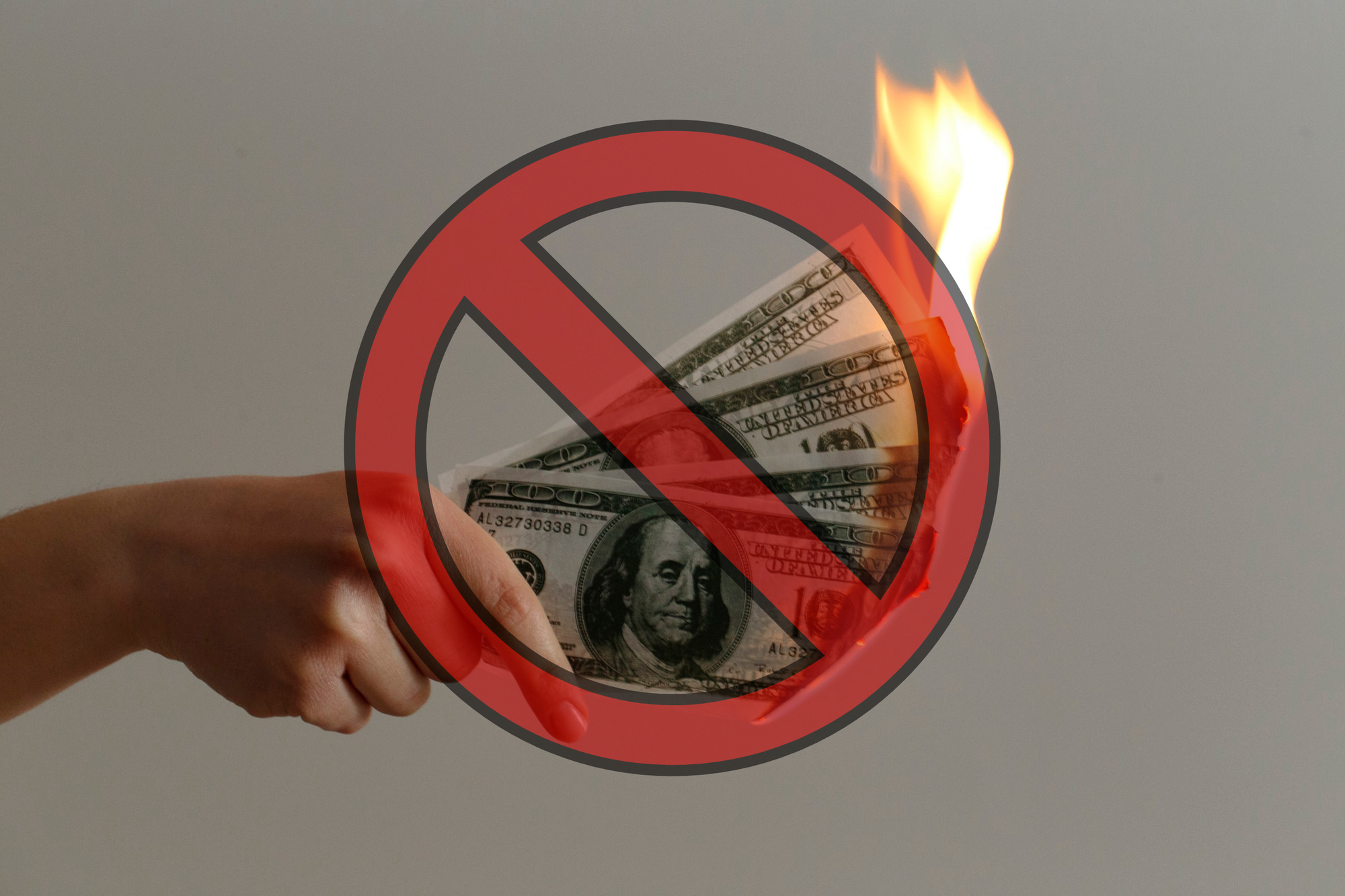A cheaper alternative to college
Dear younger self, here's how you could've saved $31,897 in college debt.

My first two years at university, I failed 75% of my subjects. But still had an $8,000 bill. Whose fault? Mine, of course.
By the end of the 5-years I was there, I ended up graduating but left with a $32,000 bill. 5-years later, it’s still there.
I learned a lot, had a lot of fun. But what’s also fun is to think about an alternative.
Could I have done it all without the $32,000 bill?
Let’s do an experiment. We’ll use the regular 4-years undergrad timeframe. And see what we can come up with.
I’m going to treat this as a letter to my younger self. But I’m sure there will be a few things you can relate to.
Who was I?
I was the one who had no idea what they wanted to do out of high school and went to college because it was the thing to do rather than considering what else there was.
Okay younger Daniel, if you know what you want to learn and it’s not in the fields of medicine or law or something like that (you should probably go to college for those), how could you do it?
Side note: I realise you kind of did want to study medicine. But that was more for the status of saying I’m studying medicine more than actually wanting the knowledge. Avoid these kind of status games.
Back to it.
How could you learn what you want to learn without college?
There is no speed limit
The first thing to do is throw out the 4-year timeframe. Because in reality, there is no timeframe. Undergrad timeframes are set to suit everyone.
You can learn as fast or as slow as you want on your own. But let’s say you prefer fast. Because the world favours speed. And you’re pretty good at getting pretty good at anything you dive into.
How could you spend your time?
Wait.
What are you trying to do?
You’re trying to learn something. That’s right. And what’s the purpose of learning something?
You could learn it for the sake of learning it but it’s likely you want to use it. You’ll want to learn something, apply what you’ve learned and turn it into a skill. A skill which you can use to create or offer as a service to others.
Great. Now you know what you’re trying to do. How do you do it?
Wait.
Although, with an internet connection, most learning is free. Living still costs money. Food costs money. Rent costs money.
The shitty (but worth it) part-time job to fund yourself
How do you get money?
You’ve just finished school and you’re not very good at anything. Don’t worry, you’re not alone. Most schools build classroom skills. Which are valuable in classrooms but not very many other places.
You’ve got options here. One is to get a part-time job. Preferably one where you have to interact with a high number of people. Why? Because interacting with people is a part of life. And why not get paid to do it?
Use your interactions to learn how to talk, learn how to ask questions, good questions, learn how to provide a service, build confidence talking to strangers. Pretend they have a secret and it’s your job to figure it out.
It doesn’t matter if it’s a supermarket or a hardware store. Learn how to interact and be a curious person, these skills will come in handy everywhere.
The job you get won’t pay much. It doesn’t matter. You don’t need much. Keep your expenses low. Plus, the job isn’t your focus. You show up, you do what’s needed. You collect the paycheque.
Some days suck, some customers aren’t fun to deal with. That’s alright. Use all of it as fuel.
Now you’ve got a little bit of cash. You can start to fund yourself straightaway. Even a $200 per week paycheque is more than being -$32,000.
There’s no shortage of education, only a shortage of willingness to learn
Remember the thing you wanted to learn? Now’s the time to start learning it.
You know how to use the internet. Use it to learn what you want to learn. Read about it, watch videos about it, reach out to the people who seem to know what they’re doing.
And here’s the thing. The thing you want to learn can be anything. But the trick is to choose something, to follow your curiosity, then keep following it.
You’ll suck in the beginning. But don’t compare your progress day on day. Compare it month on month, every 3-months, every 6-months, year on year.
Assume you’ll forget 99% of everything you learn. Remembering 1% won’t seem like much, but over time, it adds up. 1% everyday compounds into 3700% over a year.
Prove your abilities by sharing your work
To supplement your learning, from day 1, you’re going to teach others by sharing what you’ve learned. Doing this will mean you’re applying what you’ve learned straight away.
Learning to code? Build applications and publish them.
Learning to write? Write articles and share them.
All the effort you put into writing an essay for a college assignment, where 1–2 people if you’re lucky will read it, do the same except publish it on your website, where it’ll live forever.
Learning to take photos? Take photos, edit them and publish them.
Learning about business? Start one and sell something.
Traditional pathways do the opposite. They try to teach every single thing about a topic before they let you go and start applying them. That’s like trying to boil the ocean. Why boil the ocean? Maybe because it’s a good reason to keep you there for 4-years.
But I’m still learning, I don’t think I’m ready to put it out there…
The secret is, we’re all still learning. Anyone who claims they’re not is a liar.
But my work isn’t as good as XYZ…
Don’t compare your chapter 1 to someone else’s chapter 10. Where do you think they started?
Get so good business comes to you and if it doesn’t, go to it
Let’s see where you’re at.
You’ve got a part-time job paying your expenses, you’re learning the thing which sparks your curiosity and you’re sharing your work.
What now?
You could use the first 2-years of the 4-year timeline as a time to build foundational skills. This is where you get good at whatever it is you’re learning. Because if there’s anything which will earn you money, earn you work, earn you respect from others, earn you life satisfaction, it’s being good at something.
But learning on my own won’t get me a job… what about having a degree? How do I prove what I’ve done?
This is where sharing your work comes into play. If people can see what you’ve done. And they can see, you’ve got the ability to deliver because you’ve been creating things for the past 2-years. And they can see, you’re good at what you do. And they require services similar to yours.
Your next step is to wait for them to reach out to you.
Get good enough you won’t even have to apply for a job. They will come to you. And when they do, charge them. You’ll end up creating your own role, one you’re uniquely good at. By following your own curiosity, and continually delivering value to others.
But what if they don’t?
Reach out to them. You know what you’re capable of. Show them. By now, you’ve got plenty of published work. That’s your resume.
If they say no, don’t worry. It’s not you, it’s not them either. Things just didn’t line up. That’s how it goes.
And did you forget?
The job you thought you’d hate. You thought would be a waste of time. The one where your manager was a dick but you didn’t have many responsibilities except to make sure customers were served well and the shelves were stacked every now and then? Now you can use your customer service skills with your own services.
The best certificate is being able to say, “here’s what I’ve done”
If you’ve done it right, at the end of 4-years (less if you’re fast), you’ll come away with a skill, probably multiple skills, an ability to talk to people, multiple paid opportunities and a string of work you’ve put out into the world, things you can point to and say, “here’s what I’ve done.”
What do you miss out on?
$25,000+ in debt and a shiny certificate.
Not a bad trade.
Still not convinced? You ended up doing this. But time travel hasn’t been figured out yet so you’ll have to wait and see.
Love,
Your future self.
